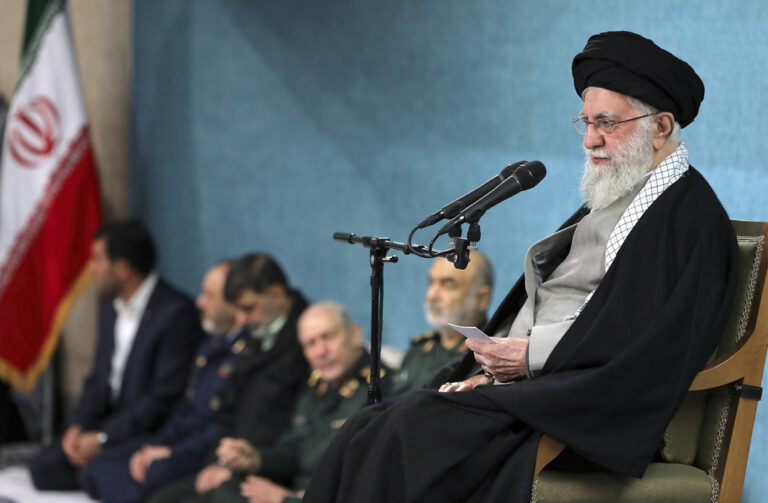 The chief justice who once mangled President Barack Obama’s oath of office has once again helped rescue the president’s signature achievement, his health care law.
The chief justice who once mangled President Barack Obama’s oath of office has once again helped rescue the president’s signature achievement, his health care law.
After an awkward first encounter, these two Harvard Law graduates who rose to high positions of power from opposite ends of the political spectrum are bound together in the legacy of a law that the president says has now been “woven into the fabric of America” and that Roberts may not even personally support.
It was Roberts who wrote the majority opinion in Thursday’s 6-3 ruling that preserved a critical element of the health care law. And it was Roberts who provided the critical vote to uphold the legal underpinnings of the Affordable Care Act in a 5-4 ruling in 2012.
“This will be a part of them both,” predicted Harvard’s Laurence Tribe, the constitutional scholar who once had Roberts as a student and later hired Obama as a research assistant.
Tribe, a supporter of the health care law, called it a kind of “kismet” that didn’t have to happen that way.
This second ruling by Roberts may well have been easier for him than the first: This time, he was the sixth vote, with Justice Anthony Kennedy along for the ride and providing a cushion. And it only made sense that Roberts would back the law rather than gut it, when he’d already been savaged by conservatives for his ruling three years ago.
Critics of the health care law were nonetheless quick to castigate the latest decision, although many of those in Congress went the route of championing Justice Antonin Scalia’s dissent rather than focusing on the chief justice personally.
House Speaker John Boehner, an ardent critic of the health care law, batted away a question about whether he was disappointed in Roberts, saying, “I’ll let the legal beagles around the country debate the chief justice of the Supreme Court.”
Likewise, the White House shied away from addressing the Obama-Roberts connection, with press secretary Josh Earnest referring to the “business relationship” that the two men have in their respective roles.
Valerie Jarrett, Obama’s senior adviser, put the ruling in a historical perspective. “There’s a long history on the Supreme Court of justices exercising their independence,” she said. “That’s part of why they have lifetime appointments. You want to free them up from feeling politically beholden.”
But not everyone was ready to accept the ruling as evidence of Roberts’ judicial independence.
Carrie Severino, chief counsel to the conservative Judicial Crisis Network and a former law clerk for Justice Clarence Thomas, said the “the two biggest losers today are the English language and the legacy of Chief Justice Roberts.”
“If the chief justice is willing to join the court’s liberals in this linguistic farce, it’s time we admitted that our national ‘umpire’ is now playing for one of the teams,” she said, referring to Roberts’ description of a judge as one who impartially calls balls and strikes.
Larry Klayman, head of the conservative group Freedom Watch, said the six justices in the majority had “violated their own long-established rules of interpretation for applying statutes to instead advance their own political objectives or burnish their public persona. … The justices abandoned the rule of law and have become merely a political focus group.”
Ten years ago, when Obama was the junior U.S. senator from Illinois, he had his own reservations about the future chief justice. Obama said he feared Roberts would favor the powerful over the weak, and voted against his confirmation. He said Roberts was qualified in temperament and scholarship for most of what comes before the high court, but not for those truly difficult cases where “the critical ingredient is supplied by what is in the judge’s heart.”
Tribe speculated that Roberts is no fan of the health care law, “but I don’t think he had any difficulty voting the way he did.”
(AP)











3 Responses
“the critical ingredient is supplied by what is in the judge’s heart.”
Justice Scalia wrote in today’s dissent:
”The Supreme Court of the United States has descended from the disciplined legal reasoning of John Marshall and Joseph Story to the mystical aphorisms of the fortune cookie.”
But it’s all ‘ashes in the mouth’ now
It is not the job of a judge to rule on whether a law is good or bad policy. The tax clauses were written over 200 years ago, and allow stupid fees pretending to be taxes. The government has been running social security for some time, so government mandated insurance is well established. THe same liberal approach that allows Obama to do stupid things, will also the Republicans to undo them if they ever manage to return to power (meaning control of the White House and both houses of Congress).
#2
THe majority of republicans care little, UNLESS you raise an outcry